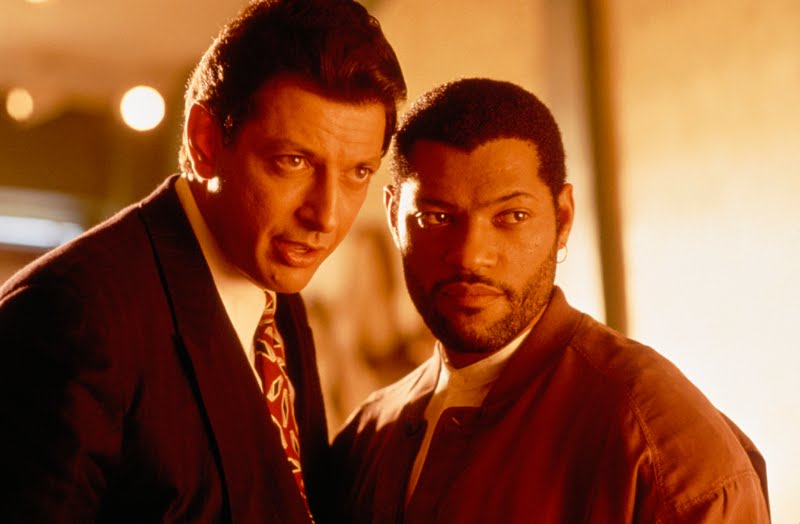_______________________________________
Seeing as the market has essentially been in a corrective mode since late-March, I wanted to run down a few items that I think are useful not only for reflection, but to consider going forward if the market continue to be indecisive.
If there is one thing that constantly jumps off the screen to me, in this day and age of real-time social trading, it is the focus on short-term results instead of correct decision-making. Too often, traders bemoan a small loss that they took, instead of stoically moving on to the next trade content that they were able to prevent a small loss from turning into a larger one. Actually, the more important thing to consider was the strategy heading into and going out of the trade. Was it sound? Was it consistent with your philosophy and style? Indeed, over the long run it is sound strategy and disciplined execution that wins out. Frankly, anything can happen in the short-run on any individual trade, despite how much of a sure thing it seemed when you entered it.
Over the course of a career, there simply is no such thing as going undefeated as a speculator. Losses are just as much part of trading as cracked eggs in a carton at the supermarket are–You just try not to go home with cartons full of cracked eggs in your portfolio by examining the inside of each one at the market and quickly putting them back down. Of course, the absolute key is doing your best to mitigate your downside risk by not letting small losses and/or bad trades metastasize into the monster one that can blow you up and out of this business.
That may sound a bit too abstract, so let me give you an example. Let’s say a gambler takes a trip to Las Vegas and stays at Steve Wynn’s Encore Hotel. The gambler goes to dinner, has a few drinks, and sits down in the casino at a roulette wheel, looking to get lucky. Suppose the gambler is now drunk and bets much more than he can afford. Despite that, the gambler goes on an exhilarating hot streak, hitting all sorts of long-shot bets, such as the green O or OO numbers. A huge crowd now gathers behind the drunk and lucky gambler, as they cheer him on as he literally takes money off of WYNN‘s bottom line.
On its face, knee-jerk logic dictates that Steve Wynn would be a bit upset at this development. You might venture to guess that Wynn and his managers would call down to the casino floor to have one of his pit bosses remove the gambler from the establishment. Who knows? Perhaps the gambler can go on winning all night and clean out the casino!
In reality, though, the exact opposite happens.
Steve Wynn’s underlings would most likely reward the gambler with a free buffet, a free show, perhaps a free room at the hotel for a few days. Why do such a crazy thing? Because Wynn has a clear mathematical house advantage in the game of American roulette. In other words, over the long run, as long as Wynn and his workers do not make decisions that run contrary to the idea of gamblers showing up with money to lose in a game in which his casino has an edge, he wins and wins big. So, instead of lamenting the relatively small loss Wynn just took, he is more focused on making correct decisions over the long run. In this case, the better decision is to keep the gambler coming back for more Vegas trips to his hotels to play roulette. Wynn does this by making the gambler happy and rewarding the short-term hot streak. If he kicked every gambler out of his casino who went on a hot streak, word would spread around and fewer gamblers would likely show up, which would clearly be a decision that would hurt his bottom line much more than any random short-term loss.
So, the long-term decision is much more important than any given short-term result. Think about that the next time you feel “trapped” in a trade that is down 2-3% on you.
Far more important than any individual trade that turns against you are the following two issues:
- Looking at the evidence as objectively as you can, did you make the correction decisions in your thesis for the trade?
- Did you have and respect a plan of action to mitigate your downside risk? (My usual maximum threshold stop-loss is 7-8% on swing trades, but it varies from trader to trader).
If you enjoy the content at iBankCoin, please follow us on Twitter









So Chess…the question is…are you buying or selling?
Head on in to the 12631 trading sevice. You can see what I do in real-time there and have access to the best trading community around.
Excellent post.
lookin at NG this morn.
sheesh, ok greece and france go all social, but this is what got me down today.
http://tv.yahoo.com/news/george-lindsey-known-goober-pyle-dies-165308205.html